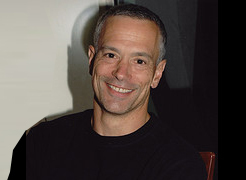1Mby1M Virtual Accelerator Investor Forum: With Geoff Ralston, President of Y Combinator (Part 1)

Geoff Ralston is President of Y Combinator. We had a terrific discussion on what we each are seeing in the startup ecosystem.
Sramana Mitra: Geoff has been involved with Y Combinator right from the beginning. Why don’t we take a look back on the evolution of Silicon Valley and Y Combinator.
Geoff Ralston: I’ve been at YC for over 10 years now. YC has been around for 16 years. I’ve known Paul Graham longer than that. We worked at Yahoo together. As Paul began thinking about startups and started YC in 2005, I did get involved. For my own learning, I go to Demo Day and watch what’s going on. YC is the pioneer in changing how venture capital worked and how entrepreneurs can start to think about starting companies.
Sramana Mitra: What has changed in how you’re operating now?
Geoff Ralston: A lot. I usually like to talk about what stayed the same. Maybe I’ll start with that and then talk about how we’ve evolved over time. We’re still a pretty small company. We’re bigger than we used to be, but we still feel like a startup ourselves.
Most of the people at YC are startup people. We really hold on to that ethos as much as we can. We still fund mostly hackers. I think of that fairly broadly. We fund people who hack hardware, business, biology. We fund a whole bunch of companies all at the same time with a simple document. They don’t tend to be more than four or five pages long.
We still run a three-month program twice a year whose intention is to transform the trajectory of the companies that we work with. When we started, we offered just a little bit of funding and advice. We really expanded the set of programs and resources that we have for startups.
I resonated a lot with the story of 1M1M. We have a startup school which is a free program that works with hundreds of thousands of founders. We launched in 2017. We have programs to help people find jobs at startups. We have a Series A program that works with companies after our early-stage program.
Then we have a growth program. We have this elaborate software stack and team that builds the software that startup school runs on. The founders in the companies that we fund stayed the same and expanded to. We have funded a lot of international companies. In the last batch, half the companies we funded were international. Our first batch in 2005 was eight companies. Our most recent batch is 400 companies.
Sramana Mitra: Let me steer the conversation in the direction that would be the most helpful for our community. There’s some amount of confusion about what’s ideal for Y Combinator. When you think of an accelerator or incubator, people tend to think that it’s very early stage. We’ve done quite a few Y Combinator case studies that applied to Y Combinator after doing a significant amount of bootstrapping. Clearly, you are accepting people who are further along. Dispel this confusion and help us understand what is acceptable.
Geoff Ralston: A lot of venture capitalists talk about the stage of the investment that they work with. We’re not a typical venture capitalist. We don’t really see the world that way. The question is somewhat meaningless for our batch program. We think of ourselves as a school for startups.
When a startup can derive value from being part of our network, the advice that we give, and being associated with Y Combinator, then that startup is a good candidate for the program. This is usually a pre-Series A company. Once you’ve raised $10 million to $20 million and have a Board, they will rarely do our core batch program. It is true that we have funded companies where there were just two to three founders with an idea. There are even companies with an eight-figure revenue.
This segment is part 1 in the series : 1Mby1M Virtual Accelerator Investor Forum: With Geoff Ralston, President of Y Combinator
1 2 3 4 5
Featured Videos
Can 1M/1M Help Me Raise Money?
How Does 1M/1M Democratize Entrepreneurship Education?
How Does 1M/1M Democratize Management Consulting?
When Is The Right Time To Join 1M/1M?
Can 1M/1M Help Me With Business Development?
Can 1M/1M Help Me With Market Sizing?
Can 1M/1M Help Me Validate My Product?
Will I Have Private 1-on-1 Sessions In 1M/1M?
How Does 1M/1M Help Entrepreneurs Connect With Silicon Valley?
Mentoring or Consulting?
Why Does 1M/1M Charge $1000 a Year?
Why Does 1M/1M Partner With Local Organizations?
Why Don\’t Mentoring Networks Work?
Why Is It Important To Study With 1M/1M Now?
Dan Stewart Story
Vikrant Mathur Story
